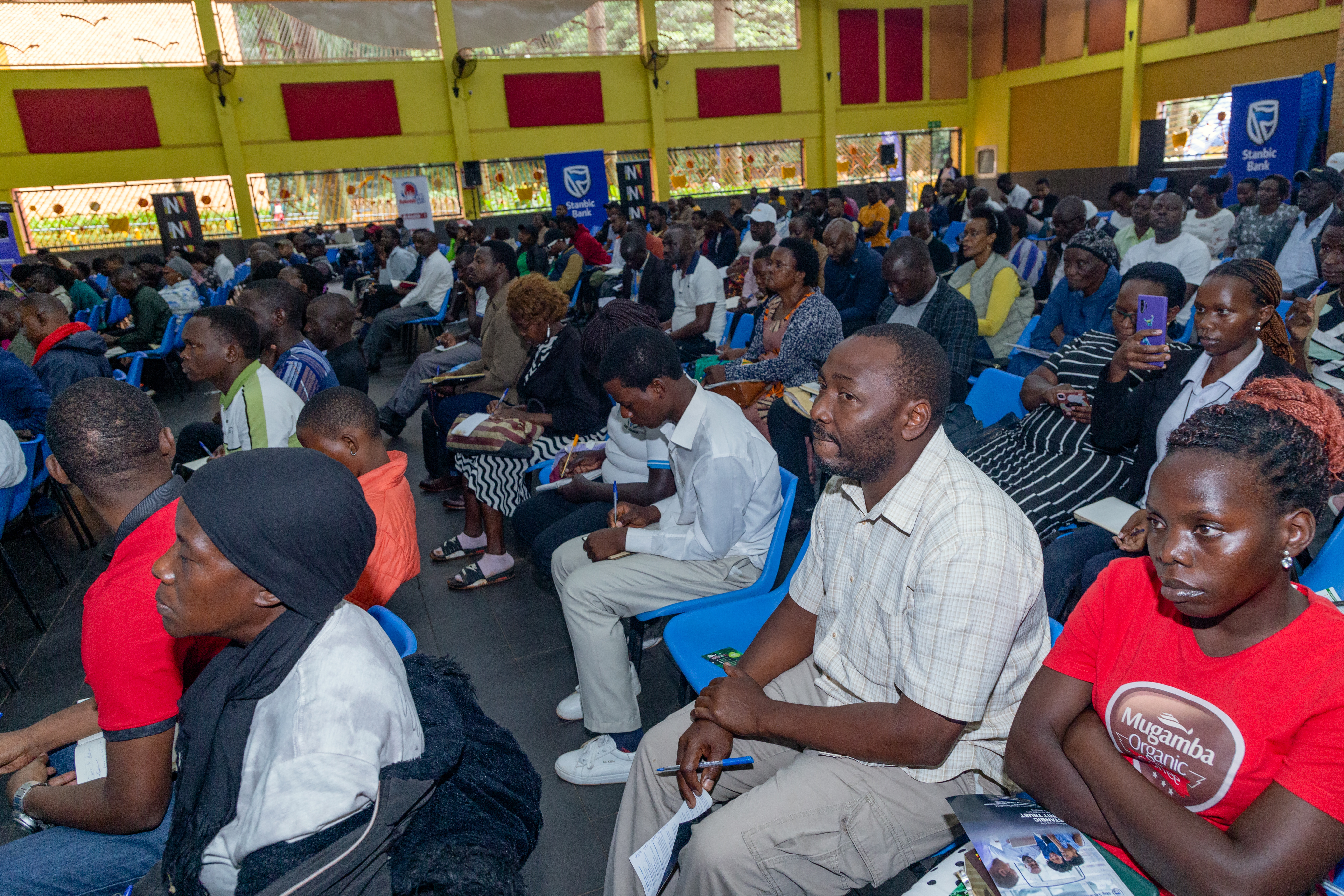PSST Ggoobi Delivers Keynote Address at 10th Edition of Pakasa Forum
The Permanent Secretary and Secretary to the Treasury (PSST), Ramathan Ggoobi in his keynote address at the 2024 Edition of the Pakasa at Kampala Parents School saidUganda has regularly been ranked among the most entrepreneurial countries in the world, adding that on average three in every ten Ugandans start a business annually.
To put it in a global context, Ggoobi said only one in tenJapanese and less than one in ten Americans start a business every year.
"Uganda is known as a global hotspot for entrepreneurs.
More interestingly, 7 of every 10 start-ups in Uganda are owned by the youth," said the PSST.
However, Ggoobi noted that researchers have found that most Ugandan businesses are small and informal and few succeed and the reason is that most of them are ‘necessity enterprises’ (not
businesses searching for opportunity), and in a bid to avoid taxes and registration, many of them miss out on opportunities derived from formalization.
Ggoobi said government is focused on addressing the “binding constraints,” by separating the real issues affecting micro, small and medium enterprises (MSMEs)from the usual ‘laundry list’ cited in self-reported surveys and other badly conducted researches.
He said some of the binding constraints affecting business survival and growth include: capital, technology (tools, codes and knowhow), infrastructure (electricity, transport and logistics, workspaces etc.) and business knowledge and environment (business development services; corporate governance; markets; multiple taxes, fees and licenses; politics within the central business district; crime rates etc.)
The PSST said the Government of Uganda (GOU) is doing a number of things to address the binding constraints to SME growth.
"Government has prioritized private sector facilitation, particularly SMEs, to accelerate growth, create jobs and wealth, enhance exports, and increase local content,” said the PSST.
The SME-related interventions include; provision of alternative sources of affordable capital. In total, GoU has provided capital in wealth funds at the tune of Shs 8.03 trillion.
These funds include Uganda Development Bank (Shs.1.45 trillion), Emyooga (Shs. 553 billion), Parish Development Model (Shs.3.4 trillion), the Agricultural Credit Facility (Shs.495.6 billion), Youth Venture Capital Fund (Shs.12.5 billion), Youth Livelihood Fund (Shs. 207.95 billion), Uganda Women Entrepreneurship Program (Shs. 168 billion), Small Business Recovery Fund (Shs.100 billion), Generating
Growth Opportunities and Productivity for Women Enterprises (Shs.824 billion), and Investment for Industrial Transformation and Employment (Shs.800 billion).
To promote local content, specifically in the Oil and Gas sector, the PSST said 465 Ugandan firms have been awarded contracts worth US$1.973 billion, translating in 74% of contractors in the sector. He said the number of Ugandans registered on the National Oil & Gas Talent Register grew to 8,856 by December 2023.

"This is a testament to Government’s commitment in implementing its Buy Uganda Build Uganda Policy, “saidGgoobi in his keynote address at the Pakasa Forumorganized by the Vision Group.
He said a physical One-Stop Centre at Uganda Business Facilitation Centre in Kololo has been operationalized to facilitate registration and investor support.
Ggoobi said other interventions include; entrepreneurshipskilling programmes under the Presidential initiative for Zonal Industrial Hubs that have been established across the country, in addition to SME workspaces in industrial parks that have been set up
such as Mbarara SME Park.
He said under the NDP IV, Government has set out to implement a Ten-fold Growth Strategy whose aim is to expand the economy from $50 billion in FY 2022/23 to $500 billion by 2040.
"The areas that are going to be very lucrative are four: the ATMS: Agro-industrialization; Tourism; Mineral-based industrialization, including oil & gas; and Science, Technology, and Innovation, including ICT," he said.
The PSST reiterated that Government aims to progressively improve the investment climate of Uganda by lowering cost of doing business through frontloading investments in energy, ICT
and transport that account for a large share of production costs.
He challenged micro, small and medium enterprises to
learn how to follow the money from export markets andalso know that Uganda’s economy is changing.
To illustrate the changing economy, he said in 1995, coffeecontributed 62% of Uganda’s export earnings, followed by tourism 10%, fish 3%, maize 2.5%, gold 2.4%, tobacco1.6%, tea 1.25% & cotton
1.2%. By 2000, coffee’s contribution to Uganda's
export earnings had reduced to 26.5%, tourism rose to 27%, fish to 5.4%, and tobacco 4.8%, ICT and cut flowers emerged at 2.5% and 1.3% respectively.
He said by 2010, Uganda’s export basket had become more diversified with coffee reducing to 10% and ICT increasing to 15.2% and several manufactured items emerging such as cement 2.3%, steel products, textiles, soap etc.
Today, Uganda’s top exports are gold 36.8%, travel and tourism 17.2%, coffee 10.51%, ICT 9.73%, transport3.22%, cocoa beans 1.8%, sugar 1.2%, insurance and finance 1.07%, fish 1% and 28 other products.
Fundamentals of growing and doing successful business
The PSST advised the participants at the forum who included; entrepreneurs, innovators, business leaders & business experts as follows:
1) Choose products/services with a few substitutes.
2) Do not attract government/regulators to your business.
3) Aim for quality not profitability. Care more about quality and productivity and not profitability. Quality is win-win but profitability can be win-lose.
4) Aim for sales revenue maximization not profitmaximization.
5) Aim for growth of your business, not sustainability per se.
6) Separate Ownership and Control.
7) Seek to satisfy expectations of all stakeholders–workers, customers, suppliers, bankers, Government, the public, and yourself.
The PSST said Government is going to do whatever is in its power and ability to provide the necessary public goods to facilitate wealth creation. Quoting Adam Smith, he said, “…all that is needed of a state is peace, easy taxes, and a tolerable administration of justice; all the rest being brought about by the natural course of things.”
"Your job as a wealth creator is to position yourself in such a way that you can tap into various available opportunities by both the visible hand (Government interventions) and the ‘invisible hand’," said Ggoobi.
